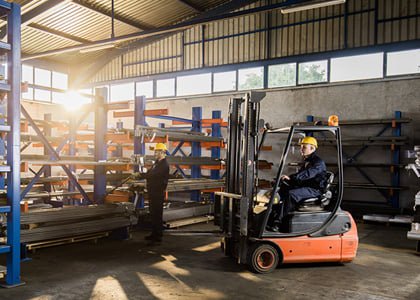Save time and money with preventative maintenance.
We believe that keeping your business moving is critical. Any loss in productivity can prove costly, and we don’t just mean the cost of fixing your machines. Unplanned maintenance costs can range from lost production, staff time, emergency parts and – let’s face it – a damaged reputation following delayed deliveries.

Forklift maintenance is also a legal requirement. It’s important to ensure that your forklift is serviced and examined within the prescribed service intervals. In Ontario, for example, Regulation 851 requires regular assessments and maintenance of the load-handling capacity. This regulation requires that examinations must be done after every 2000 hours of use, based on an assumption that you are using the forklift for single shifts over a period of 12 months. However, if you are using the forklift for double-shifts, your required inspection must be done more frequently. It’s also important to know that even if your forklift is only used intermittently, you are still required to have an examination at least once a year.
In addition to mandatory inspections, here are some things you can be doing daily to ensure your forklift stays in perfect working order:
1: If the forklift is being used very regularly, you should complete daily checks on liquid levels, such as hydraulic fluid, brake fluid, engine oil coolant and fuel.
2: Before driving, ensure that the battery is fully charged, plug connections are secure and that there are no exposed wires.
3: Check tires for the correct air pressure and any evidence of excessive wear or splitting.
4: Look out for wear and tear on hydraulic hoses, unions & cylinders. If there are any signs of splitting, cracking or weeping, organize them to be replaced before they break entirely.
5: Raise the fork tines (the two metal lengths, hanging on the front of the carriage). Constantly dragging them against the ground will cause excessive wear and tear, and will also use more fuel, which is a very avoidable cost.
7: If you have compressed air, blow the forklift unit and radiator out weekly. A blocked radiator is a common problem in forklifts. Plus, it will keep the unit nice and clean.
8: And most importantly, if you do see a potential problem forming, call it in before it becomes a real issue. This will prevent downtime in repairs, in addition to creating a safer work environment for you and your employees!

